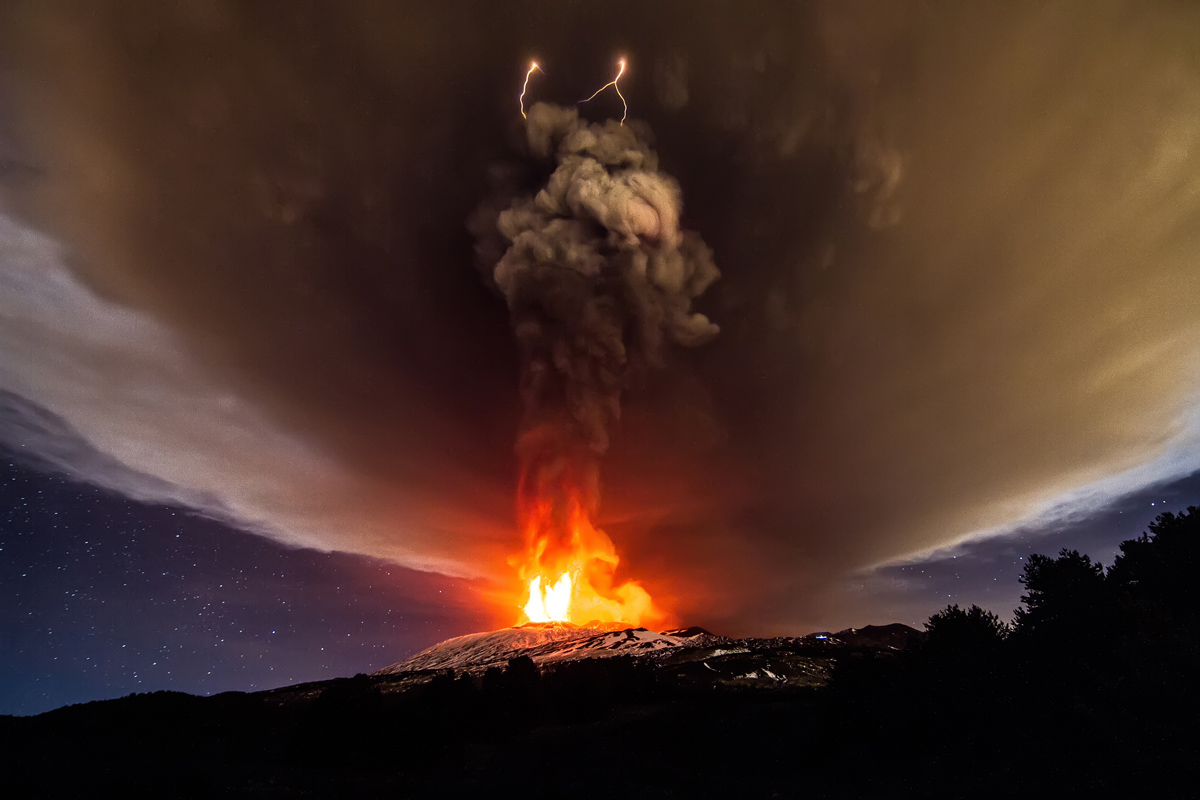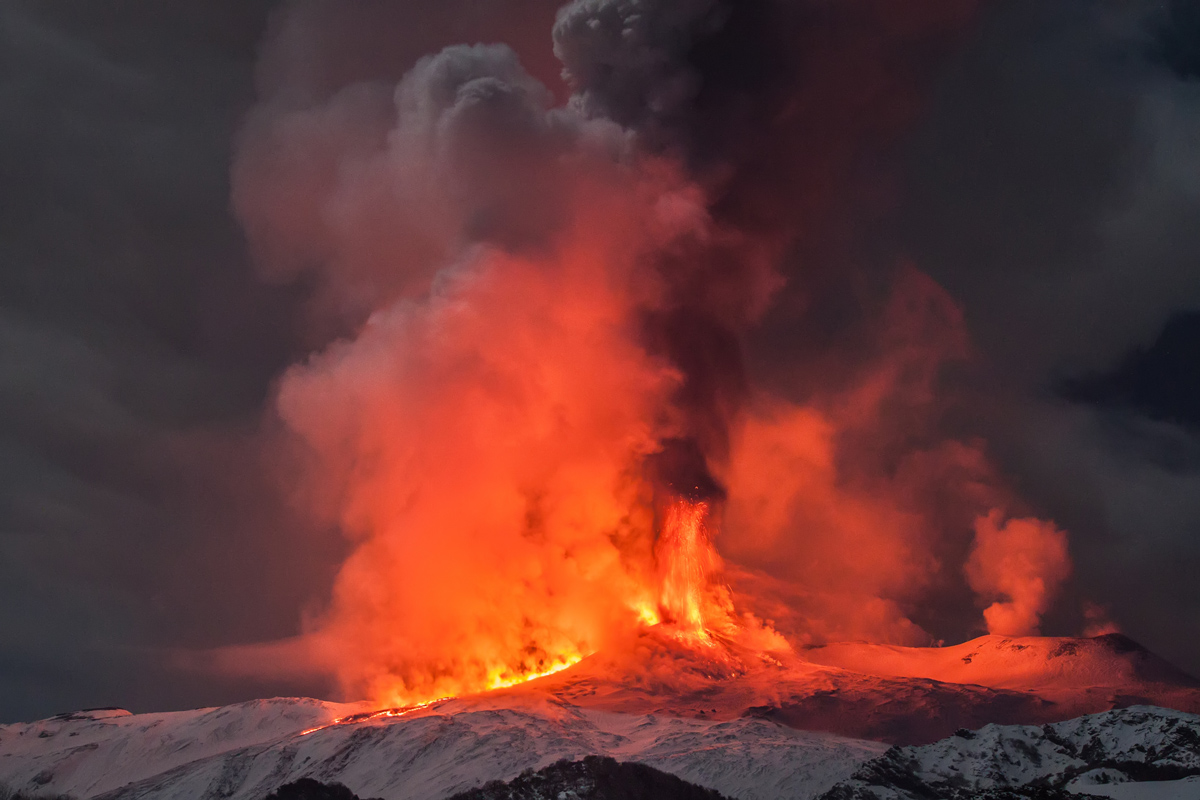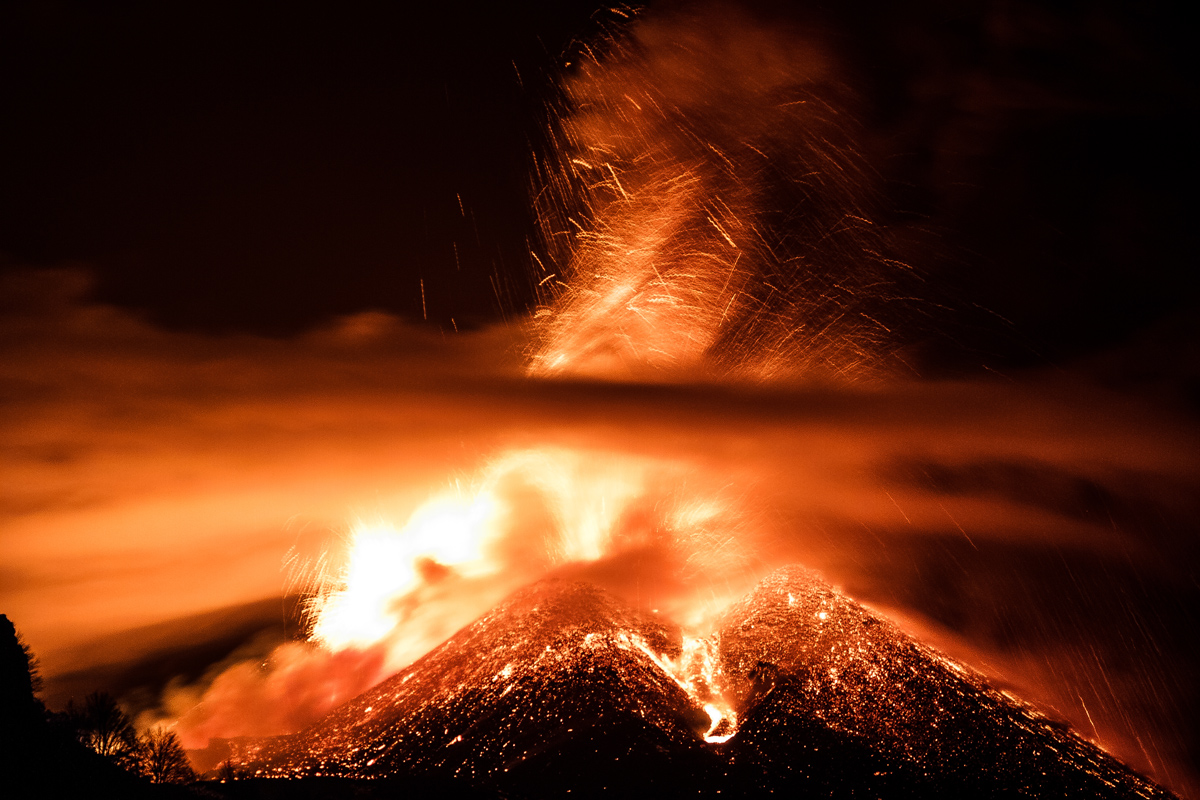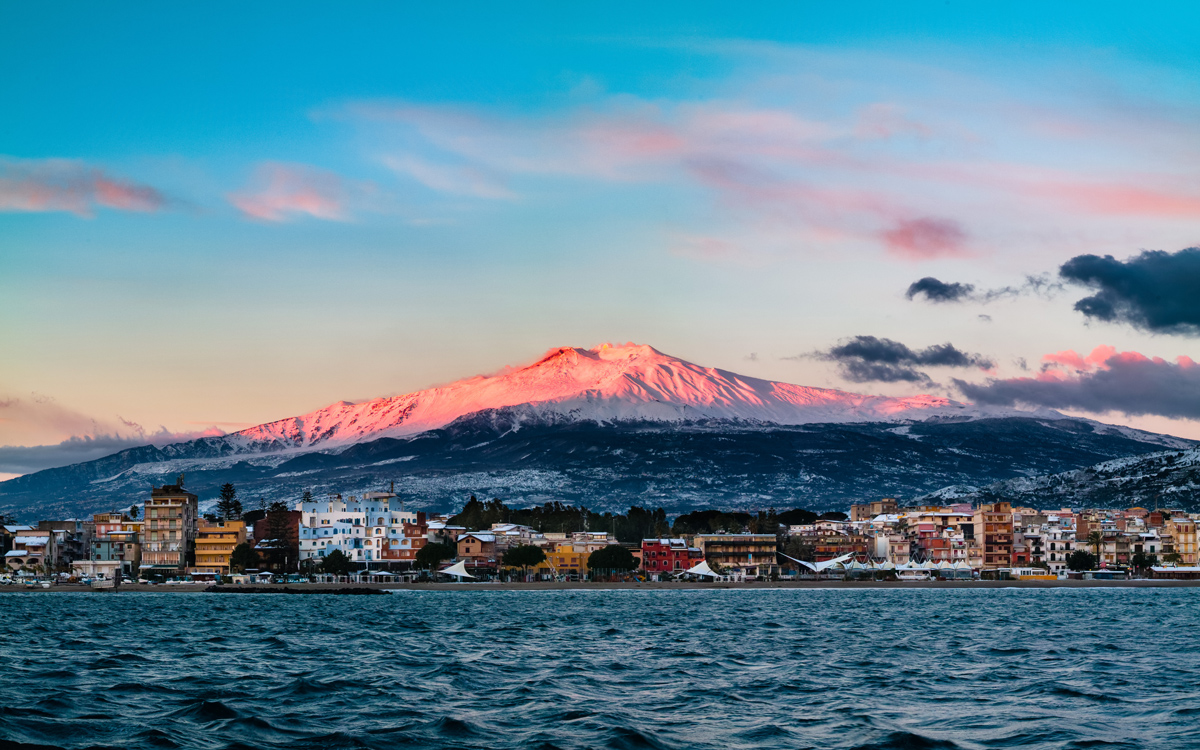Mount Etna: Photos of the Largest Active Volcano in Europe
Huge craters

Mount Etna is a series of nested stratovolcanoes with four distinct summit craters. There are two central craters, called Bocca Nuova and Voragine; the Northeast crater; and the Southeast crater, which was formed by an eruption in 1978.
Fiery beauty

Strombolian eruptions, which produce ash, tephra and lava fountains, are fairly common in Mount Etna's craters.
Long history

The first recorded observation of an eruption at Mount Etna was written by Diodorus Siculus in 425 B.C.
Spewing lava

Mount Etna has almost continuous eruptive activity near the summit craters and in the Valle del Bove, but these vertical eruptions pose little threat to nearby towns on the east coast of Sicily.
Beautiful mountain

Though the volcano's many eruptions can sometimes be dangerous, locals call Mount Etna "Mongibello," which means "the beautiful mountain."
Get the world’s most fascinating discoveries delivered straight to your inbox.

Denise Chow was the assistant managing editor at Live Science before moving to NBC News as a science reporter, where she focuses on general science and climate change. Before joining the Live Science team in 2013, she spent two years as a staff writer for Space.com, writing about rocket launches and covering NASA's final three space shuttle missions. A Canadian transplant, Denise has a bachelor's degree from the University of Toronto, and a master's degree in journalism from New York University.


